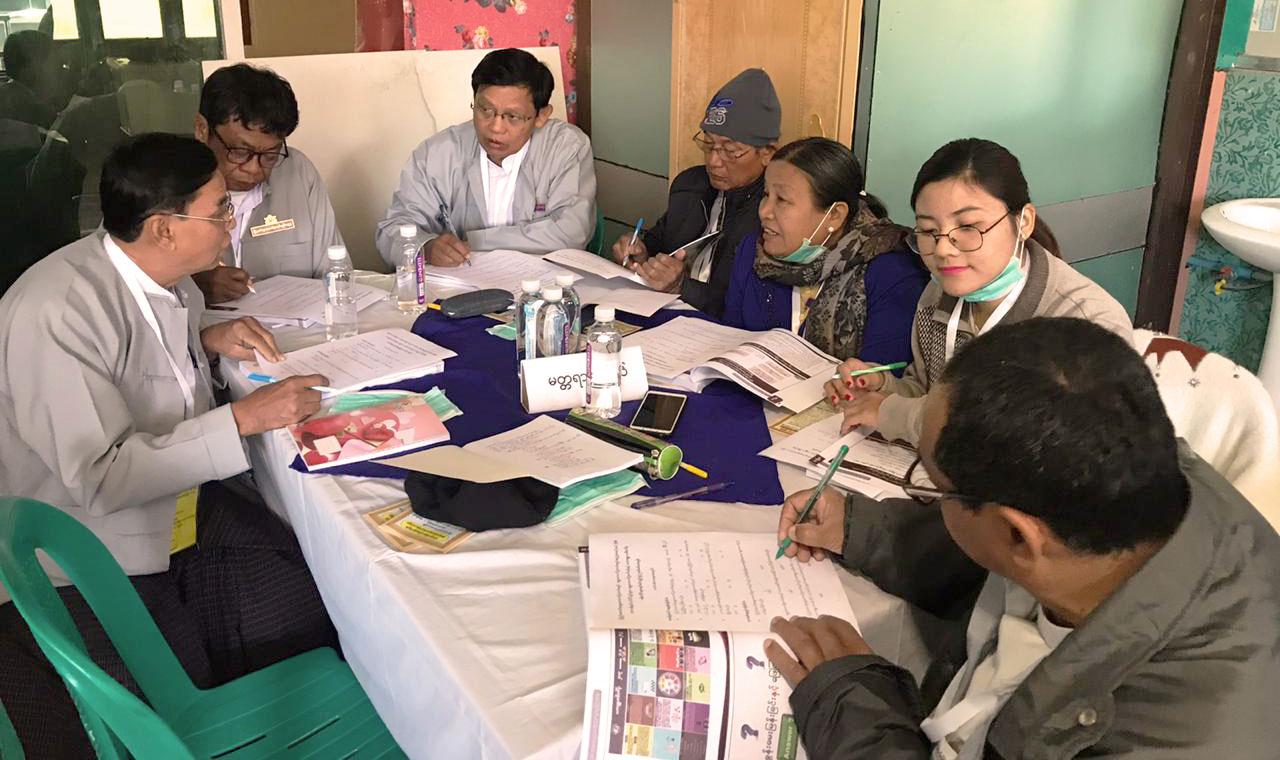The European Union (EU)-funded programme ‘Support to Electoral Processes and Democracy – STEP Democracy’ worked with Myanmar’s key election stakeholders—the Union Election Commission (UEC), political parties and civil society—to prepare inclusive 2020 elections. While progress has been made in strengthening the technical process of elections, challenges related to establishing and implementing an inclusive legislative and policy framework for elections must be addressed in order to strengthen Myanmar’s democratic process, the enfranchisement of disadvantaged groups and its citizens’ idea of democracy.
Addressing EU election observation recommendations
The UEC has worked to address the EU’s election observation recommendations from 2015 with support from International IDEA’s embedded office within the commission. For instance, the UEC has revised election by-laws to allow military voting outside of barracks, enhanced transparency, increased outreach to political parties, media and civil society, and allowed free access to election observers.
NOTE: On 1 February 2021, Tatmadaw—Myanmar’s armed forces— seized power by detaining President Win Myint, State Counsellor Daw Aung San Suu Kyi, and other high-level government officials and declared a one-year state of emergency. The military is citing errors in voters list as reason for rejecting the results of the November 2020 elections and staging the coup. The military has appointed a new Union Election Commission (UEC) to oversee a ‘new’ election. The Chairperson, Deputy Chairperson, and the Spokesperson of the former UEC remain in detention in undisclosed locations. National and international observers had issued reports indicating that the elections were conducted in accordance with the relevant international standards and principles. As of 4 March 2021, the military and police have killed 54 peaceful protestors demanding restoration of democracy.
Engaging in dialogue with civil society
Despite increased public scrutiny, the UEC engaged with civil society and international election observation organizations in a STEP workshop facilitated by International IDEA and Democracy Reporting International (DRI) to review accreditation procedures. The UEC revised these procedures in July 2020, taking the civil society proposals into account. Civil society organizations observed the 2020 elections and monitored social media using methodologies developed in STEP strategic planning workshops with the DRI’s support.
The UEC increased its outreach to political parties via its subcommissions through countrywide STEP dialogues facilitated by the Danish Institute for Parties and Democracy (DIPD), which focused on topics such as electoral rules and regulations
Strengthening women and youth participation in political parties
Political parties in Myanmar have worked to strengthen their internal democracy and give voice to the concerns of women and youth by learning how to establish political party structures such as women caucuses and youth wings at the region and state levels in STEP workshops and trainings conducted by the DIPD and the Netherlands Institute for Multilateral Democracy (NIMD)/DEMO Finland. In preparation for the 2020 elections, more than 100 women politicians worked in DIPD- and NIMD/DEMO-facilitated STEP workshops and trainings on their campaign management skills, including public speaking and empowerment, and increased their knowledge of Myanmar’s political system and the Code of Conduct for Political Parties. In the 2020 elections there was a noteworthy increase in the number of women candidates elected to legislatures from 13 per cent in 2015 to 18 per cent in 2020. Of 1,117 candidates in the 2020 elections, 78 young candidates (7 per cent) were elected. Further progress is needed to encourage political parties to empower women and young people.
More than 170 political party representatives worked on conflict resolution skills in STEP trainings conducted by NIMD/DEMO. At the subnational level, the STEP Women’s Academy organized by the DRI involved more than 1,500 participants and provided women municipal committee members with a platform to engage with township residents to outline and discuss municipal development plans and challenges, and to respond to citizens’ concerns.
Voter and civic education
The public benefited from a series of STEP voter and civic education activities focused on new voters, women and youth in remote areas organized by the Scholar Institute, Panna Institute and Badeidha Moe. Before Covid-19 restrictions took effect, civic education sessions for more than 1,500 adults and 200 students/teachers in Kachin, Chin, Magway and Ayeyarwady were conducted.
Under the leadership of the UEC, the TV broadcast series ‘MyVote’ supported by STEP and developed in cooperation with International IDEA provided the public with different perspectives of challenges faced by voters.
